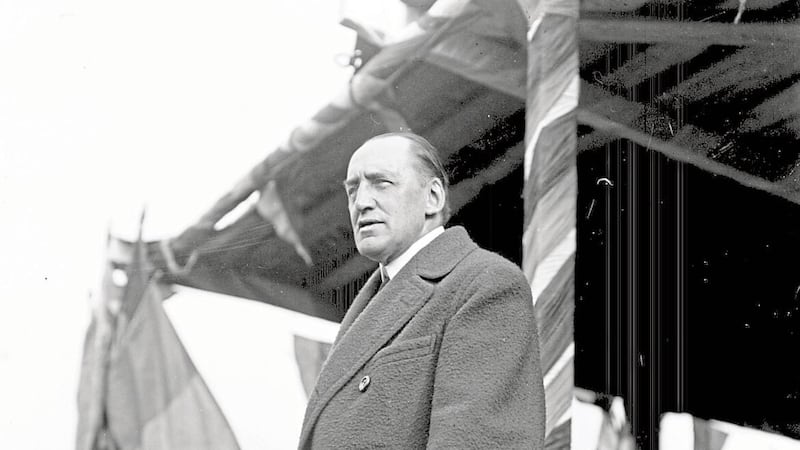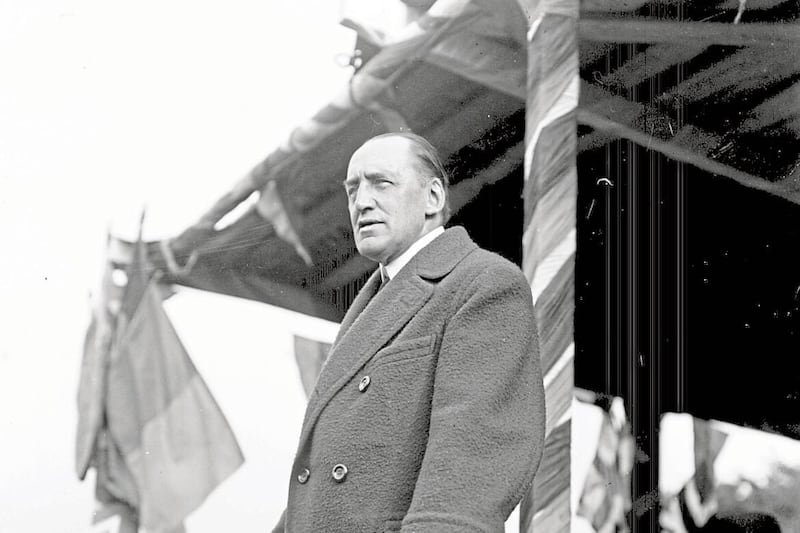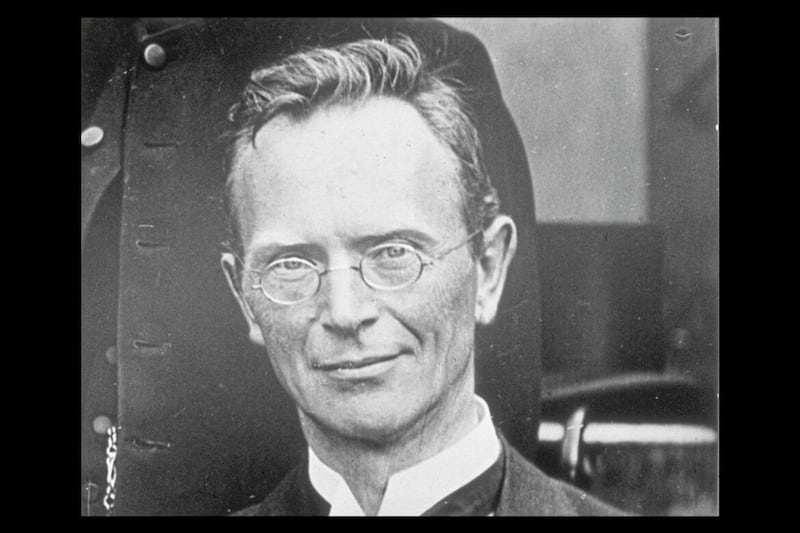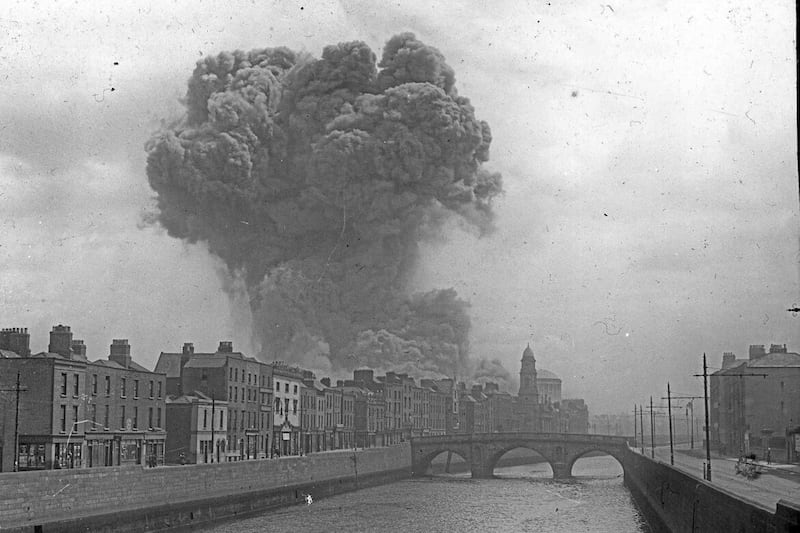ON December 14 1921, just days after the signing of the Anglo-Irish Treaty, Lord Edward Carson of Duncairn gave his maiden speech to the House of Lords, having been elevated there the previous May, claiming: “What a fool I was! I was only a puppet, and so was Ulster, and so was Ireland, in the political game that was to get the Conservative Party into power.”
Many cite this quotation as evidence that Carson was opposed to partition and only realised, when it was too late, that he had been deceived all along by the Tories in dividing the island of Ireland.
By reading his entire speech that day – an extremely bitter one even by Carson’s standards – it is clear he was not criticising the Tories for partitioning Ireland. He was criticising them for “surrendering” to Sinn Féin, by conceding too much to republicans in offering dominion status.
Throughout the speech he continuously referred to Sinn Féin as a “murder gang” and Michael Collins as its head. He was disgusted that Britain had abandoned “Ireland at the very heart of the Empire to independence, with an army, with a navy, with separate customs, with ministers at foreign courts, and delegates to the League of Nations, where they can vote against you”.
Read more:
- DUP’s strategic blunders reminiscent of 1920s Sinn Féin – Cormac Moore
- Unionist arguments against united Ireland have now eroded - Cormac Moore
- On This Day in 1923: ‘Ulster’ fate in hands of Toryism
Unlike most people, who realised from early summer in 1921 that a deal needed to be done with Sinn Féin, Carson was deeply disturbed by the negotiations with the British government that followed the truce in July. He firmly believed that the IRA was about to be defeated.
When the British prime minister David Lloyd George told Carson privately that “the game is up” and “we shall have to give in”, declaring that he therefore would resign, Carson replied that he hoped he would not involve the Conservative members of the government, Austen Chamberlain and Lord Birkenhead (FE Smith), in the discredit of such a surrender.
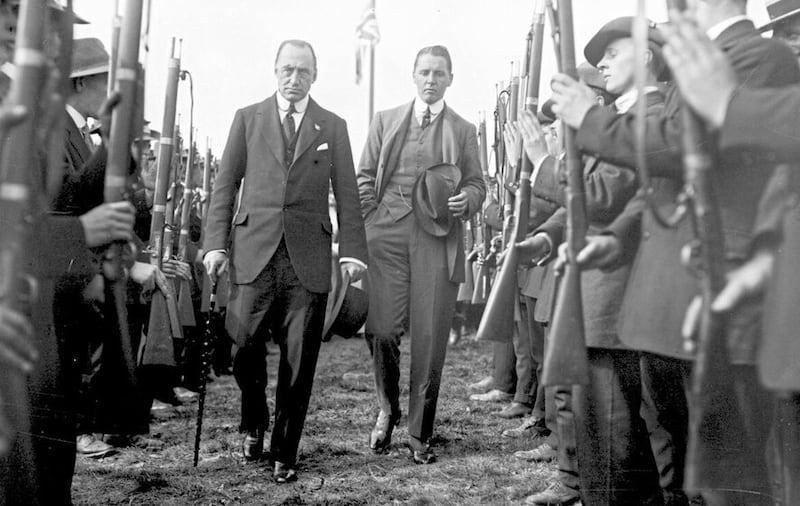
He soon discovered, however, that Lloyd George had no intention of resigning, and, much worse, that the suggestion of talks with Sinn Féin had come from Chamberlain in the first place, with Birkenhead’s support. Much of the venom in Carson’s speech was directed against his old ally Birkenhead.
While it is wrong to interpret Carson’s speech as anti-partitionist, it is very difficult to disagree with the main thrust of his message either then or today that the Conservative Party can not be trusted in its dealings with “Ulster” and Ireland.
Carson deplored “the pressure being put on Ulster to join with the South”, referencing attempts made by the British government during the Treaty negotiations to squeeze the already-established northern parliament to become autonomous within an all-Ireland parliament from Dublin instead of from Westminster.
Read more:
- Partition 100 Years On: Edward Carson the true architect of the division of Ireland
- Did Edward Carson deserve his reputation as destroyer of Oscar Wilde?
He stated: “Like everybody else, you [the British government] have betrayed Ulster… This constant preaching at Ulster is nauseating… For the last three to six months the whole vitriolic power of the press, inspired by No 10 Downing Street and their able propaganda department, have been carrying on week after week and day after day a campaign of falsehood and misrepresentation against Ulster: bellowing, bullying and blustering as if Ulster cared one farthing about it. But why is all this attack made upon Ulster? What has Ulster done? I will tell you what Ulster has done. She has stuck too well to you, and you believe that because she is loyal you can kick her as you like.”
He claimed he only accepted the Government of Ireland Act 1920 and the partitioning of Ireland once he “had the most solemn assurances from the prime minister that that was to be a settlement of the case, and a permanent one, so that Ulster might proceed, after being threatened for 30 years, to the natural development of her resources and to the progress of the great democratic community over which she presides”.
As with many other speeches and actions by Carson, his maiden speech to the House of Lords has been open to many different and contradictory interpretations that ignore the many complexities that made up Carson the man. It is clear, though, he was not criticising the Conservative Party for partitioning Ireland. He was criticising it for turning its back on “Ulster” and Ireland, as he saw it, for doing a deal with Sinn Féin.
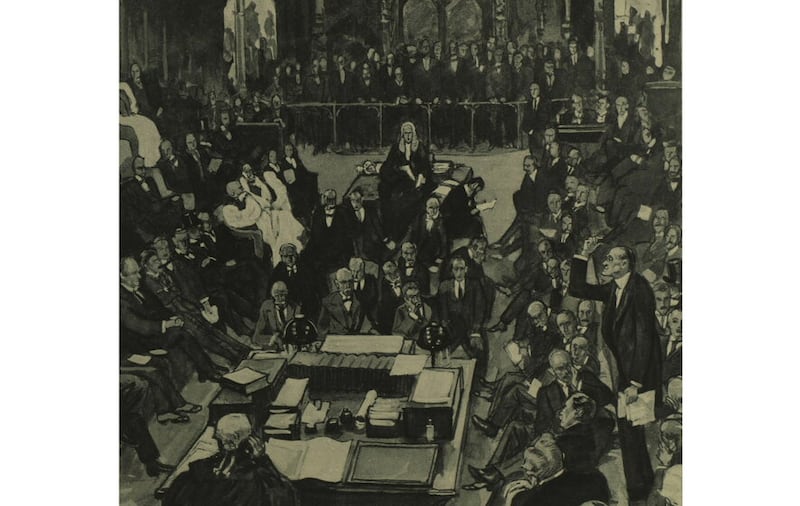
The current iteration(s) of the Conservative Party has demonstrated that much of what Carson was railing against about the party 100 years ago still holds true today. The Conservative Party has promptly ditched the interests of the people of Northern Ireland and will do so again at the drop of a hat for its own electoral interests, which rarely involves having to give any serious attention to Northern Ireland.
As the Tories imploded over Brexit, the impact of the UK leaving the EU on the north-south border was never given any thought. With the notable exception of Julian Smith, Tory prime ministers tend to send political non-entities as northern secretaries of state. Having promised the DUP he would not place a border down the Irish Sea, Boris Johnson did the exact opposite to get a European deal he could offer to an English electorate.
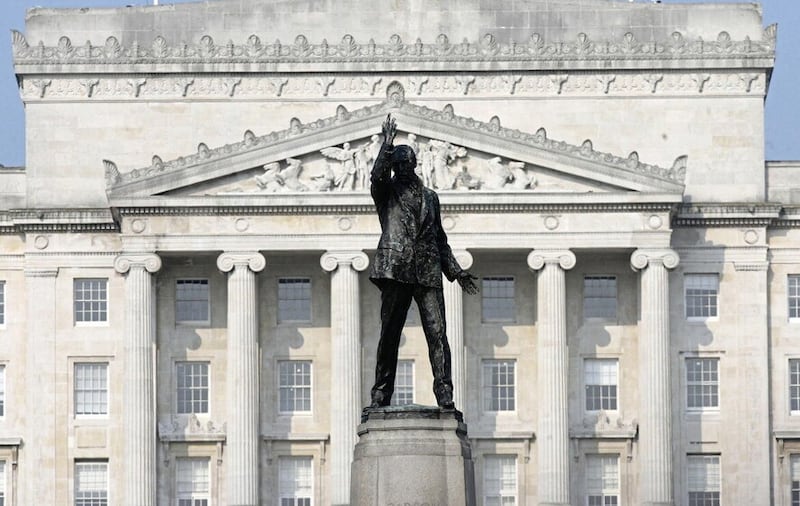
For Tories, including Margaret Thatcher, Northern Ireland has never been as British as her own constituency, Finchley. Her own northern secretary of state Peter Brooke stated as much in 1990 when he declared that the Conservative government then had “no selfish economic or strategic interest” in Northern Ireland. Recently, the impact on the Good Friday Agreement of leaving the European Court of Human Rights has barely registered with Tories in their latest internal squabble.
While some Tories have bent over backwards to declare their devotion to the union and Northern Ireland’s place within it, Ulster unionists should heed Carson’s warning of being used as puppets in the “political game… to get (or keep) the Conservative Party into power”.

